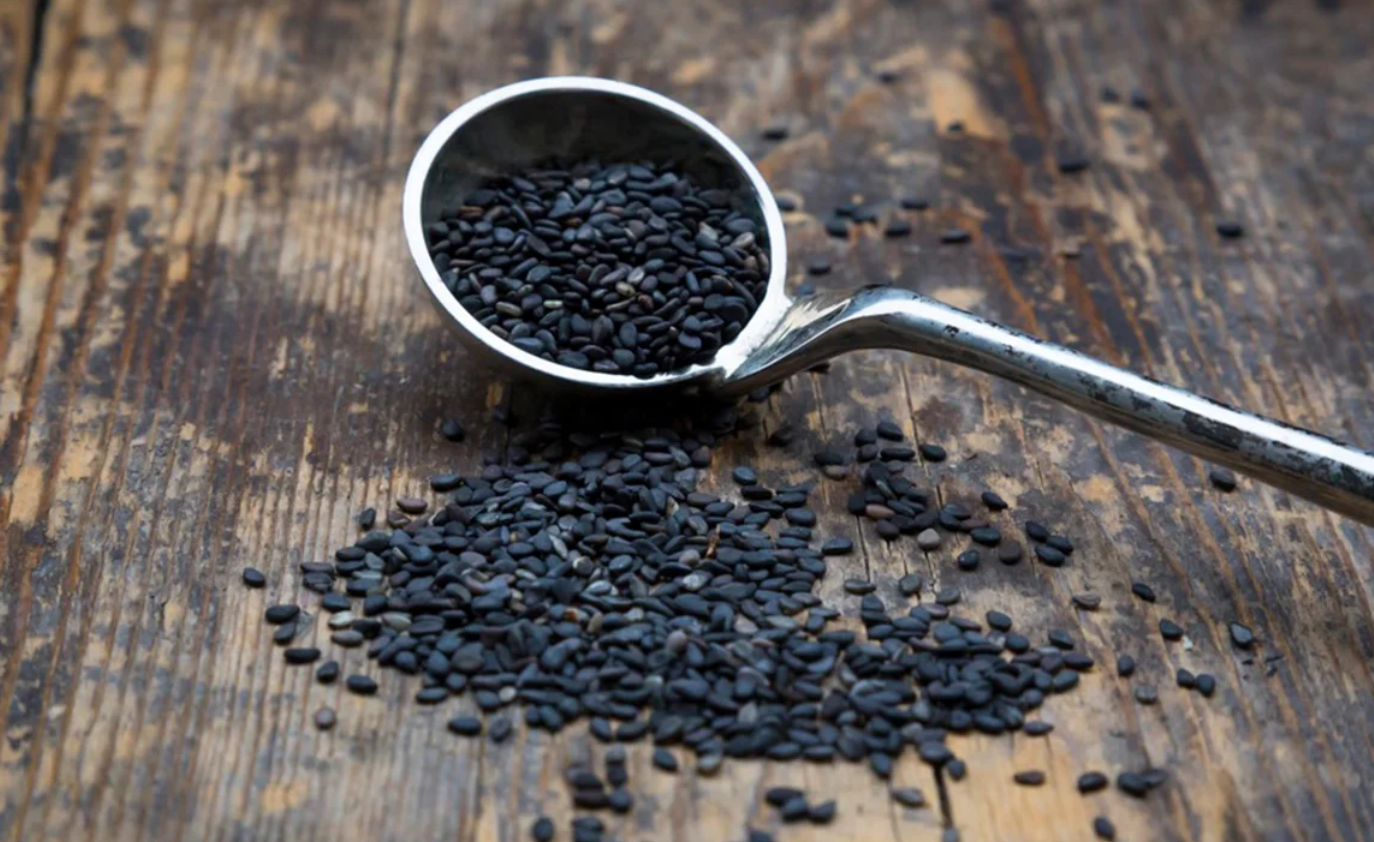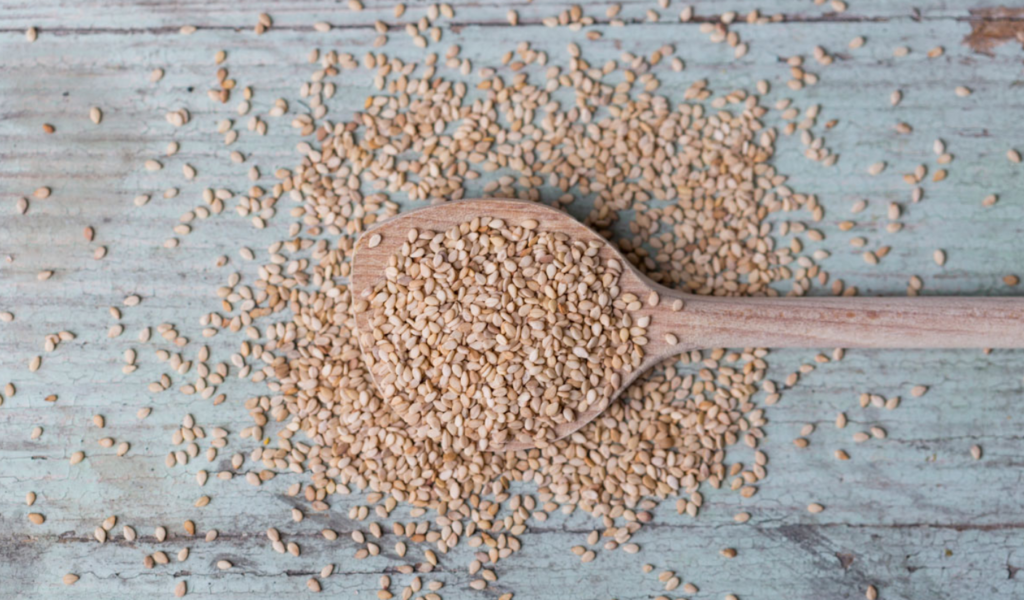Sesame seeds have many potential health benefits. For instance, they may protect against heart disease, diabetes, and arthritis. But you may need to eat significant amounts — a small handful per day — to gain health benefits.
Introduction
Sesame seeds, those tiny, oil-rich seeds that have been used in culinary and medicinal applications for thousands of years, are more than just an ingredient to sprinkle on your hamburger bun. Packed with a multitude of health and nutrition benefits, these seeds are a powerhouse of nutrients that can significantly contribute to your overall well-being. In this article, we delve into the 15 key health and nutrition benefits of sesame seeds, exploring each in detail to provide valuable insights for health-conscious individuals.
Here are 15 health benefits of sesame seeds.

1. Good Source of Fiber
Just like a tiny brush sweeps away the dust, sesame seeds help clean up our digestive system. They are a great source of fiber, promoting a healthy gut and aiding in digestion(1, 2, 3)..
2. May Lower Cholesterol and Triglycerides
Did you know that these little seeds could be your heart’s best friend? Sesame seeds are known to potentially lower cholesterol and triglyceride levels, which are key factors in maintaining heart health (5 , 6).
3. Nutritious Source of Plant Protein
For those looking for plant-based protein sources, sesame seeds are a great option. They provide essential amino acids, making them a valuable addition to vegetarian and vegan diets.
4. May Help Lower Blood Pressure
Imagine a natural stress reliever for your blood vessels – that’s what sesame seeds can be. They contain magnesium, which may help in lowering blood pressure.
5. May Support Healthy Bones
Just like a strong foundation holds a building, calcium in sesame seeds helps in building strong bones. This is particularly beneficial as we age.
6. May Reduce Inflammation
Chronic inflammation can be the root of many health issues. Sesame seeds, with their anti-inflammatory properties, might just be the soothing balm your body needs.
7. Good Source of B Vitamins
B vitamins are crucial for various bodily functions, and sesame seeds are a good source of these. They help in energy production and brain health.
8. May Aid Blood Cell Formation
Sesame seeds are rich in iron, a key component in blood cell formation. This is especially beneficial for individuals with anemia or those looking to boost their iron intake.
9. May Aid Blood Sugar Control
For those juggling with blood sugar levels, sesame seeds might be a useful addition to your diet. They can help in maintaining stable blood sugar levels.
10. Rich in Antioxidants
Antioxidants are like the body’s personal bodyguards, and sesame seeds are loaded with them. They help in fighting oxidative stress and protecting the body from various diseases.
11. May Support Your Immune System
Boosting your immune system is crucial, and sesame seeds can play a role in this. They contain nutrients that are essential for a healthy immune system.
12. May Soothe Arthritic Knee Pain
Sesame seeds may act as a natural pain reliever for those suffering from arthritic knee pain, providing some much-needed relief.
13. May Support Thyroid Health
The tiny thyroid gland plays a huge role in our body, and sesame seeds, rich in selenium, support its healthy functioning.
14. May Aid Hormone Balance During Menopause
Menopause can be a challenging time, but sesame seeds might help in balancing hormones, making this transition smoother.
15. Easy to Add to Your Diet
The best part about sesame seeds? They are incredibly easy to incorporate into your diet. Sprinkle them on salads, stir them into yogurt, or add them to your baking – the possibilities are endless!
Conclusion
Incorporating sesame seeds into your diet can offer a wide range of health benefits. From supporting heart and bone health to enhancing your skin and hair, these tiny seeds are a nutritional powerhouse that can significantly contribute to your overall well-being. Remember, while sesame seeds are beneficial, they should be consumed in moderation as part of a balanced diet.
By understanding the multifaceted benefits of sesame seeds, we can appreciate the role of this humble seed in our daily nutrition and health regime. Whether you sprinkle them on your salads, blend them into smoothies, or use them as an ingredient in your meals, sesame seeds are a versatile and nutritious addition to any diet.
FAQs
Q1: How much sesame seeds should I consume daily?
A: A small handful or about 1-2 tablespoons per day is generally recommended.
Q2: Can sesame seeds cause allergies?
A: Yes, some people may be allergic to sesame seeds. If you experience any allergic reactions, it’s best to avoid them.
Q3: Are sesame seeds suitable for all diets?
A: Yes, they are suitable for most diets, including vegetarian and vegan.
Q4: Can sesame seeds help in weight loss?
A: Sesame seeds are high in fiber and may aid in weight management as part of a balanced diet.
Q5: Are there different types of sesame seeds?
A: Yes, sesame seeds come in various colors like white, black, and brown, each with slightly different flavors and nutrient profiles.





